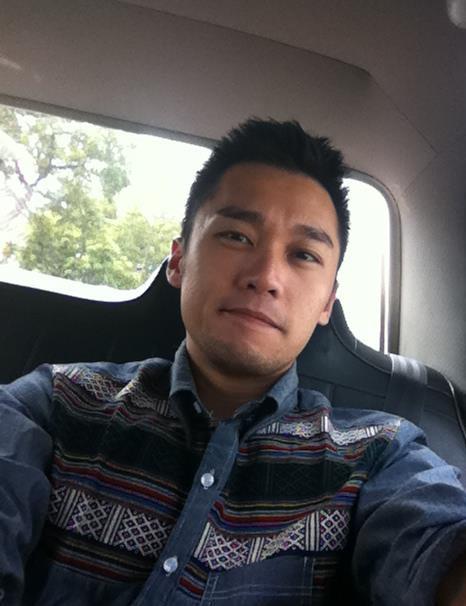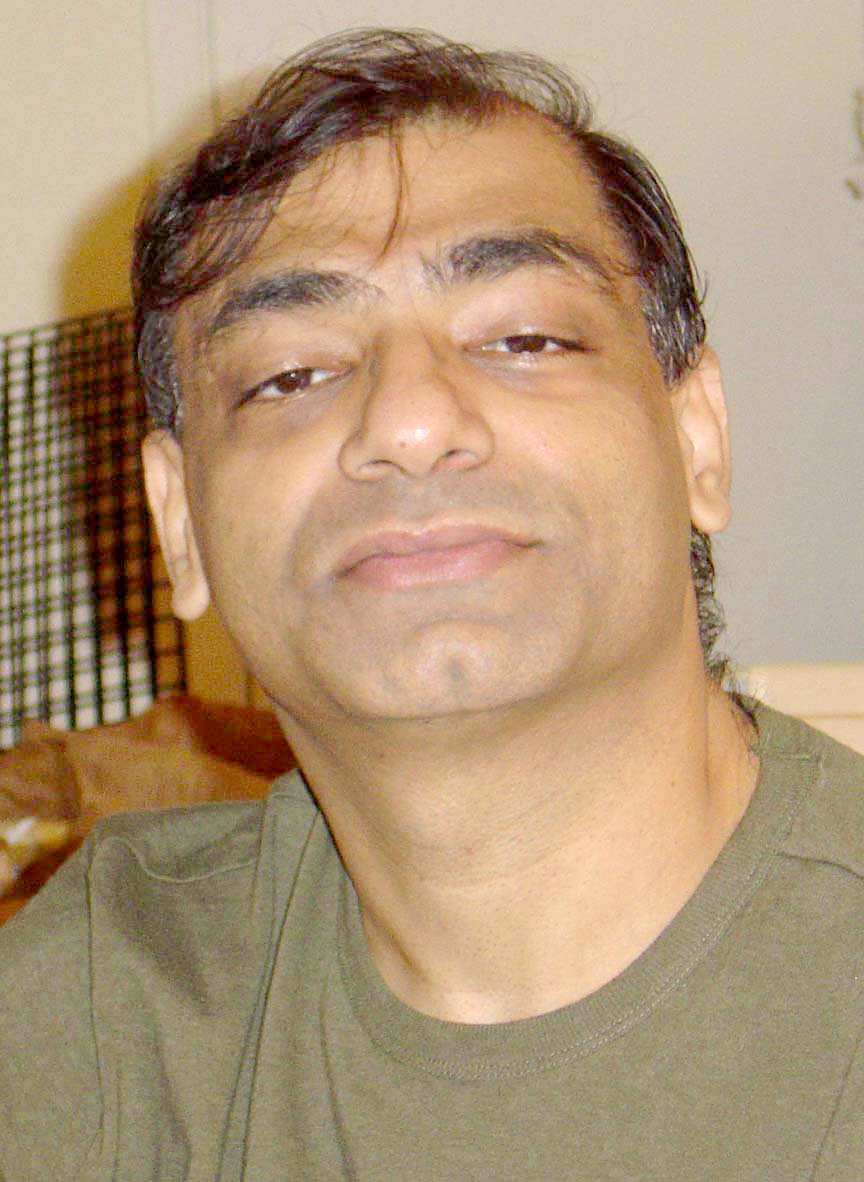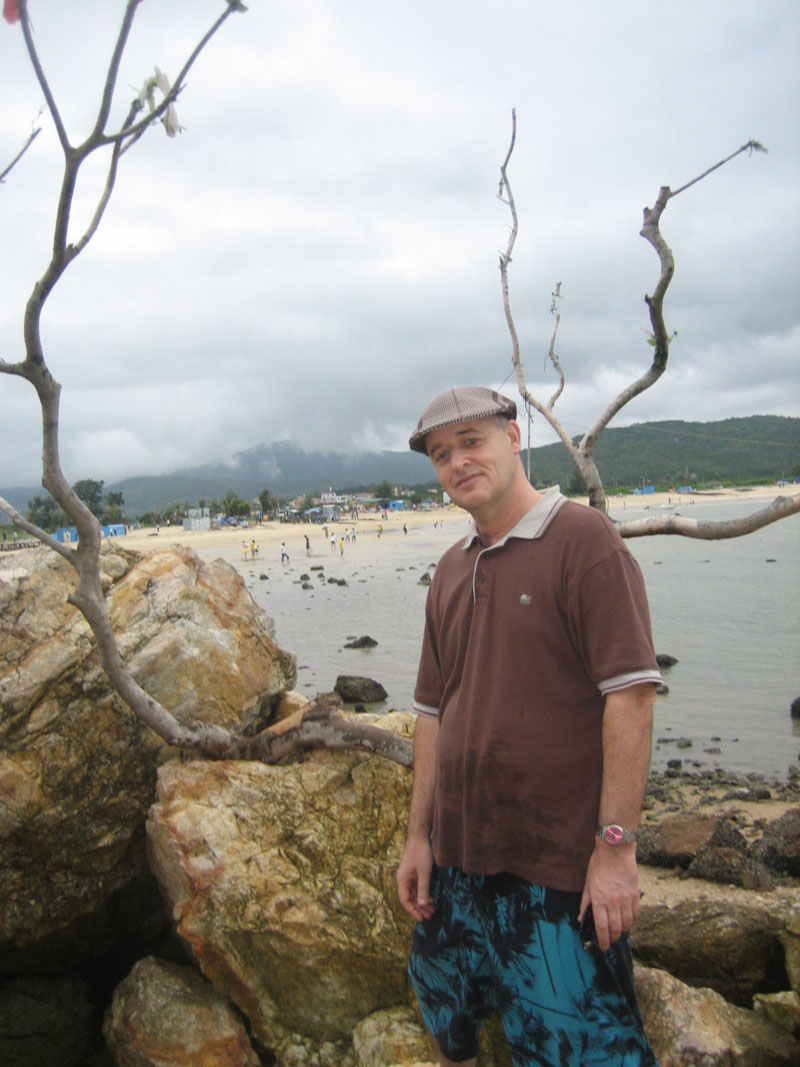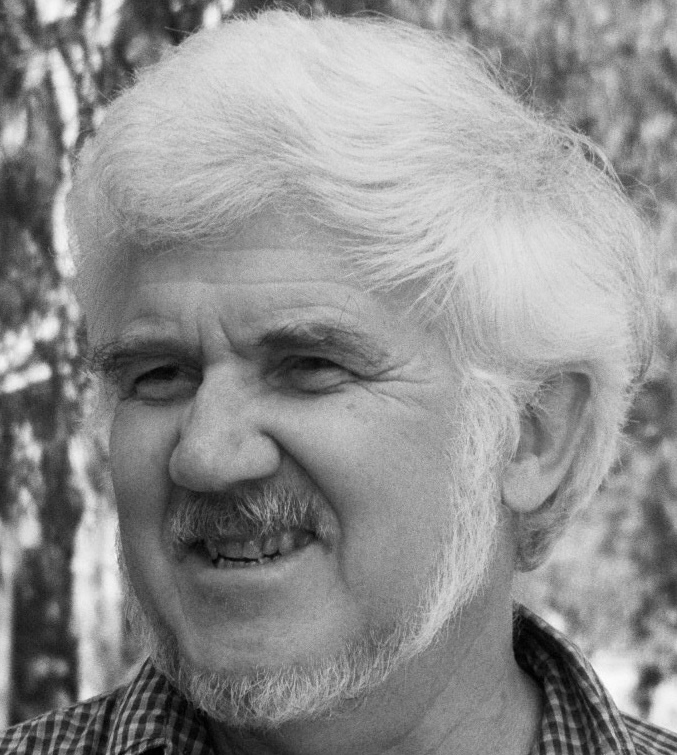Nicholas YB Wong
 Nicholas YB Wong is the winner of Sentinel Literary Quarterly Poetry Competition and a nominee for Best of the Net 2010 and Best of Web 2011 Anthology. His poetry is forthcoming in Assaracus: Journal of Gay Poetry, Prime Number Magazine, San Pedro River Review, Pirene’s Fountain, Third Wednesday and the Sentinel Champion Series. He is currently an MFA Candidate at the City University of Hong Kong. Visit him at http://nicholasybwong.weebly.com
Nicholas YB Wong is the winner of Sentinel Literary Quarterly Poetry Competition and a nominee for Best of the Net 2010 and Best of Web 2011 Anthology. His poetry is forthcoming in Assaracus: Journal of Gay Poetry, Prime Number Magazine, San Pedro River Review, Pirene’s Fountain, Third Wednesday and the Sentinel Champion Series. He is currently an MFA Candidate at the City University of Hong Kong. Visit him at http://nicholasybwong.weebly.com
Walk With Words
“I never use despair, since it isn’t really mine, only given to me for safekeeping.”
Wislawa Szymborska
Life at 3 A.M. is an elephant
urging me to make choices –
The night chill challenges my social life.
It asks why I commit myself to words
and turn away from humans,
who often talk too much.
Temperature has no speech – it never knows
the setbacks of language.
I have married words. Every night,
I bang on them, wearing my blood red matador’s cape,
working towards perfect orgasms.
Tonight, I am not writing. I walk
in the bituminous street, feeling bitter
after seeing my friends whose life
is made of unpronounceable stock codes.
My feet go numb; my existence, a walnut wafer,
brittle, belittled.
I search in the sky for the mercurial moon –
Not there.
I look back and ask the street how far I will walk
alone
Mark Twain as an Anti-Anti Smoker
Effective January 1, 2007, the vast majority of indoor areas of workplaces and public places, such as restaurants, offices, schools, hospitals, markets, karaokes and bars which are frequented by people of different ages are required to ban smoking.
Hong Kong Smoking (Public Health) Ordinance, cap. 371.
Mark Twain, a heavy smoker
(and literary
figure) himself,
is going to rule our city. And he,
with his humor and flare,
has decided to set free all
underground smokers.
In his inaugural ceremony, he strides
onto the stage,
his forefinger curling
his moustache
when he speaks:
“I won’t bow my head and
confess like a child. I give you all freedom
in an adult style.
To cease smoking is
the easiest thing I ever did. I ought to know
because I’ve done it
a thousand times.”
You, who exterminated
that thing
in the city,
must be dismayed
to know the law
is dead.
That law, an infant, which cries no more,
barely knows how to toddle.
That thing –
as you insist calling it –
has a white sinewy-lean body,
a mini-chimney,
paper-smooth, smell of ancient culture. That thing isn’t wood, but it sometimes crackles when lit
in absolute silence.
I’m warning you! That thing is returning
at full speed. And this time,
you’ll say no euphemism. You’ll speak
of its real name
as you do when you name
Jesus, Kwan Yin and the one
rolling over you naked.
During those bleak days, we felt like
fugitives
in the name of the hoary
addictive.
We hid in the darkest corner
in universities, diners,
at rooftops, anywhere so long as
they were invisible on maps,
puff
ing
and breath
ing
at the same time, degraded like dogs which ransacked for food in trash.
Soon we will hang a Mark Twain
flag outside our windows.
His face
soars in proud smoky air,
when we fondle with
that thing
legitimately inside. Soon we will smoke in buses, in churches, in malls, in the City Hall, in museums, in the Coliseum.
You then will die gradually
of second- and third-hand
smoke, and we,
devoted chain smokers,
will die faster. Don’t worry.
Don’t dissuade –
we are all prepared. Everything dies
on a predetermined date,
including the law
you once embraced.
.jpg)

 Adam King grew up in Newcastle, Australia. For the past 15 years he has taught English—a decade or so in Osaka and, more recently, in Guangzhou.
Adam King grew up in Newcastle, Australia. For the past 15 years he has taught English—a decade or so in Osaka and, more recently, in Guangzhou. Among SMS’s books of poems and poetic prose are, most recently, And then something happened (Salt, 2004), Dementia Blog (Singing Horse, 2008), and the forthcomingMemory Cards: 2010-2011 Series. She wrote A Poetics of Impasse in Modern and Contemporary Poetry (U of Alabama, 2005), and edits Tinfish Press out of her home in Kane`ohe, Hawai`i. She’s taught at the University of Hawai`i-Manoa for over two decades. Her blog can be found at
Among SMS’s books of poems and poetic prose are, most recently, And then something happened (Salt, 2004), Dementia Blog (Singing Horse, 2008), and the forthcomingMemory Cards: 2010-2011 Series. She wrote A Poetics of Impasse in Modern and Contemporary Poetry (U of Alabama, 2005), and edits Tinfish Press out of her home in Kane`ohe, Hawai`i. She’s taught at the University of Hawai`i-Manoa for over two decades. Her blog can be found at  Sampurna Chattarji is a poet, novelist, and translator with eight books to her credit. Born in Ethiopia in November 1970, Sampurna grew up in Darjeeling, graduated from New Delhi, and is now based in Mumbai. Her debut poetry collection, Sight May Strike You Blind, was published by the Sahitya Akademi (Indian Academy of Letters) in 2007 and reprinted in 2008. Sampurna’s poetry has been anthologised in 60 Indian Poets(Penguin); Both Sides of The Sky (NBT); We Speak in Changing Languages (Sahitya Akademi); Interior Decoration: poems by 54 women from 10 languages (Women Unlimited); Fulcrum (Fulcrum Poetry Press, US) and The Bloodaxe Book of Contemporary Indian Poets (Bloodaxe, UK). Her 2004 translation of Sukumar Ray’s poetry and prose Abol Tabol: The Nonsense World of Sukumar Ray is now a Puffin Classic titled Wordygurdyboom! Sampurna’s most recent book for children is The Fried Frog and Other Funny Freaky Foodie Feisty Poems (Scholastic 2009). She is the author of two novels, Rupture (2009) and The Land of the Well (forthcoming 2011), both from HarperCollins.Absent Muses (Poetrywala, 2010) is her second poetry book. More about her work can be found at
Sampurna Chattarji is a poet, novelist, and translator with eight books to her credit. Born in Ethiopia in November 1970, Sampurna grew up in Darjeeling, graduated from New Delhi, and is now based in Mumbai. Her debut poetry collection, Sight May Strike You Blind, was published by the Sahitya Akademi (Indian Academy of Letters) in 2007 and reprinted in 2008. Sampurna’s poetry has been anthologised in 60 Indian Poets(Penguin); Both Sides of The Sky (NBT); We Speak in Changing Languages (Sahitya Akademi); Interior Decoration: poems by 54 women from 10 languages (Women Unlimited); Fulcrum (Fulcrum Poetry Press, US) and The Bloodaxe Book of Contemporary Indian Poets (Bloodaxe, UK). Her 2004 translation of Sukumar Ray’s poetry and prose Abol Tabol: The Nonsense World of Sukumar Ray is now a Puffin Classic titled Wordygurdyboom! Sampurna’s most recent book for children is The Fried Frog and Other Funny Freaky Foodie Feisty Poems (Scholastic 2009). She is the author of two novels, Rupture (2009) and The Land of the Well (forthcoming 2011), both from HarperCollins.Absent Muses (Poetrywala, 2010) is her second poetry book. More about her work can be found at Tim Wright lives in Melbourne in a house backing onto a train line. The poems for this issue were written in the south west of Western Australia and are part of a longer series.
Tim Wright lives in Melbourne in a house backing onto a train line. The poems for this issue were written in the south west of Western Australia and are part of a longer series. Geoff Page is an Australian poet who has published eighteen collections of poetry as well as two novels, four verse novels and several other works including anthologies, translations and a biography of the jazz musician, Bernie McGann. He retired at the end of 2001 from being in charge of the English Department at Narrabundah College in the ACT, a position he had held since 1974. He has won several awards, including the ACT Poetry Award, the Grace Leven Prize, the Christopher Brennan Award, the Queensland Premier’s Prize for Poetry and the 2001 Patrick White Literary Award. Selections from his work have been translated into Chinese, German, Serbian, Slovenian and Greek. He has also read his work and talked on Australian poetry in throughout Europe as well as in India, Singapore, China, Korea, the United States and New Zealand.
Geoff Page is an Australian poet who has published eighteen collections of poetry as well as two novels, four verse novels and several other works including anthologies, translations and a biography of the jazz musician, Bernie McGann. He retired at the end of 2001 from being in charge of the English Department at Narrabundah College in the ACT, a position he had held since 1974. He has won several awards, including the ACT Poetry Award, the Grace Leven Prize, the Christopher Brennan Award, the Queensland Premier’s Prize for Poetry and the 2001 Patrick White Literary Award. Selections from his work have been translated into Chinese, German, Serbian, Slovenian and Greek. He has also read his work and talked on Australian poetry in throughout Europe as well as in India, Singapore, China, Korea, the United States and New Zealand.